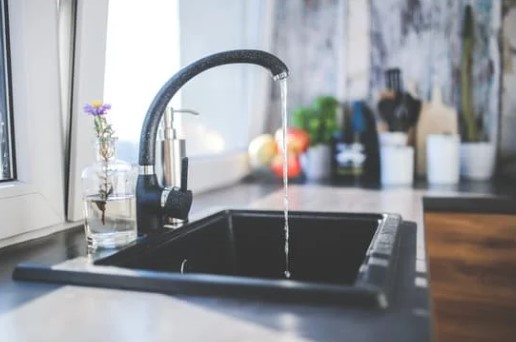
Earth Overshoot Day was marked on 2 August – the day when our demand for ecological resources and services in the year exceeded what Earth can regenerate in that year.
The day fell during my second week as an Earthwatch intern with the Sustainability and Climate Change Engagement team, and we have been focusing on promoting different ways to #movethedate each week.
I’ve been working on producing a campaign on how to save water. It may not be the most obvious choice… in a summer that has seen a lot of rain. But saving water is more important than ever. Making water potable (suitable for drinking) requires a huge amount of energy due to the extensive processing, delivery, and treatment of water. This can increase our on-Island carbon emissions which can accelerate climate change. If we reduce our water use, we reduce the need to process more and more water.
Jersey is unusual in that almost all of the water we use in the Island comes from rainfall. So in periods of reduced rainfall, we need to be especially conscious of our water use. We directly use an estimated of 150 litres of water each per day, and it can be difficult to figure out where all this water goes!
I have included some tips that you can incorporate into your day-to-day to reduce your water usage. Cutting your shower down by just one minute can save you an average of 230 litres of water per month! It is highly recommended that your daily shower is no more than four minutes long. Why not play your favourite song when you get in the shower, and aim to be finished as the song ends?
If you rely on a dishwasher, it could be worth investing in a more energy-efficient dishwasher. They almost always use less water than washing by hand which on average can use up to 75 litres of water, whereas energy efficient dishwashers use as little as 15 litre. Over time, this is a big difference to your annual water usage and ultimately your water bill! You also don’t need to pre-rinse the dishes as the enzymes in the detergent are what it needs to work effectively.
These are some of the direct ways you can save water, but did you know that some of the things you buy require a lot of water and energy to make? This is due to the need to process and transport so many raw materials. These all contribute to our Scope 3 emissions – emissions not directly produced on Island but indirectly produced due to the production of goods that we use from other countries.
I have some tips on how you can reduce water use from the things you buy. If we start with the morning, when you first wake up, perhaps you reach for a coffee? However, coffee has one of the highest water footprints. A single cup of coffee requires around 140 litres of water to grow, process, and transport enough beans. If you’re still desperate to get your caffeine fix, could you try tea instead? Even if you just replace it once or twice a week, it will begin to make a difference.
We all know that cars are big carbon emitters… But did you know they use an average of 6.4 litres of water per passenger, per kilometre! This is because of the intensive amount of water used to manufacture the car, a well as the water in the fuel. Replacing some car journeys with a bike, bus, or walk, will help you reduce both your carbon and water footprint and avoid the stresses of traffic and parking.
And now we get to the end of your day, could some of your dinners be plant based? It takes such a huge amount of water to produce products like meat and dairy due to their water intensive feed. A single beef burger for example, requires around 2,400 litres of water which is equivalent to 9 bathtubs full of water.
For more water saving tips, and for some free tools you could use in your home, I found Jersey Water.je – to be really great!

 blog.gov.je
blog.gov.je